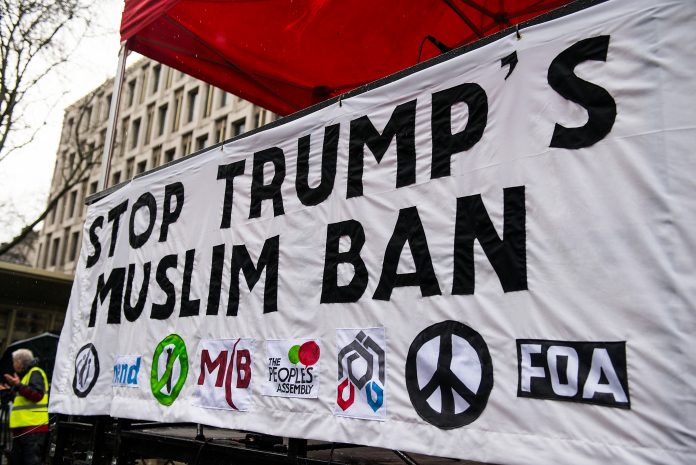When the controversial US ‘Muslim Ban’ was signed in 2017, Muslim visits to emergency departments and appointments decreased – highlighting a connection between immigration rhetoric and healthcare access
When it comes to immigration policy, the rhetoric around a minority targeted by the change can also impact those who are already citizens in the US. Non-citizens and citizens who were harmed by the ‘Muslim ban’ are both equally important, but in this Minneapolis-based study researchers looked at how openly negative representation of a group can lead to that community fearing interactions with authorities. Even healthcare professionals.
In 2017, healthcare visits from Muslims with heritage in the countries banned from entering the US by Executive Order decreased. This included people from Iran, Iraq, Libya, Somalia, Sudan, Syria and Yemen. The decrease in healthcare access ranged from primary care appointments to emergency room trips.
This decreased notably followed an already marked increase in visits, which began in November 2016 following an election season characterised by significant anti-immigrant rhetoric.
‘Immigration policies’ impact ‘people living here in the US’
“It’s clear that U.S. immigration policies can have significant effects on the health of people living here in the U.S.,” said Dr Elizabeth Samuels, corresponding author of the study and an assistant professor of emergency medicine at Brown University’s Warren Alpert Medical School.
“In this case, we saw a rise in emergency department visits among people from nations targeted in the ban as well as a rise in missed appointments from people from Muslim majority countries not named in the ban. I think that that’s indicative of the kind of rippling health effects these types of policies can have.”
The authors believe that changes in healthcare access reflect elevated stress levels, due to an increasingly anti-Muslim climate in the US.
‘Religious identity is not routinely recorded’
“One of the biggest challenges for those of us who work in Muslim communities is to try to figure out how to find Muslim Americans within U.S. health care databases, because unlike race, ethnicity or even sexual or gender identity, religious identity is not routinely captured or recorded,” said Dr. Aasim I. Padela, a study author and professor of emergency medicine, bioethics, and the medical humanities at the Medical College of Wisconsin.
“And in an emotionally-charged post-9-11 environment in which Muslims are often stigmatized, there’s actually a disincentive to offer up this kind of information.”
Researchers worked around the lack of information
In conducting the study, the researchers analysed the HealthPartners database and grouped 252,594 patients receiving care between January 2016 and December 2017 into three groups: adults born in one of the nations included in the executive order; adults born in Muslim-majority nations not listed in the order; and US-born non-Latinx adults.
They compared changes in primary care and emergency department visits, missed scheduled clinic appointments, and visits they categorised as “stress-responsive,” among individuals from nations included in the executive order from one year before to one year after it was issued.











